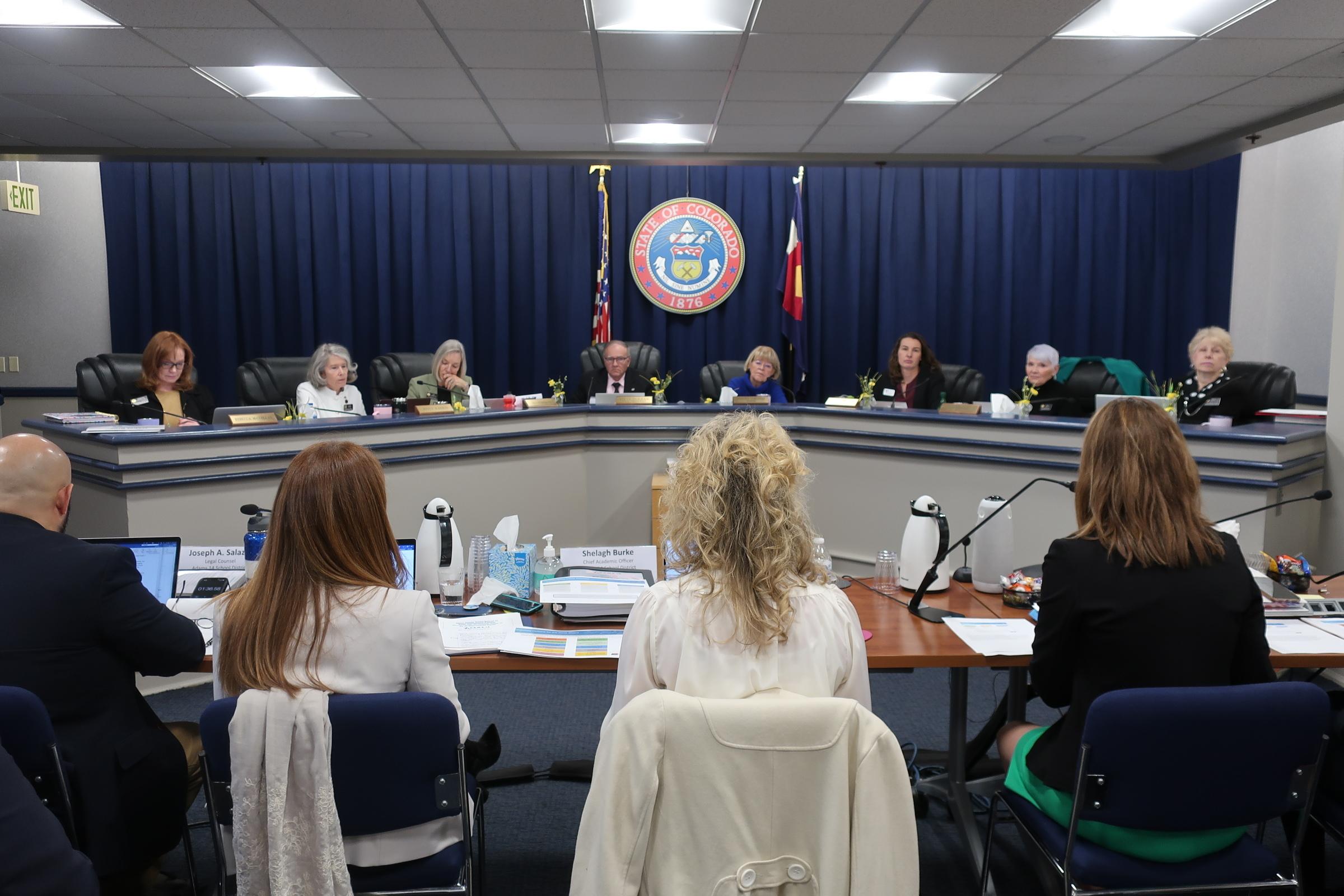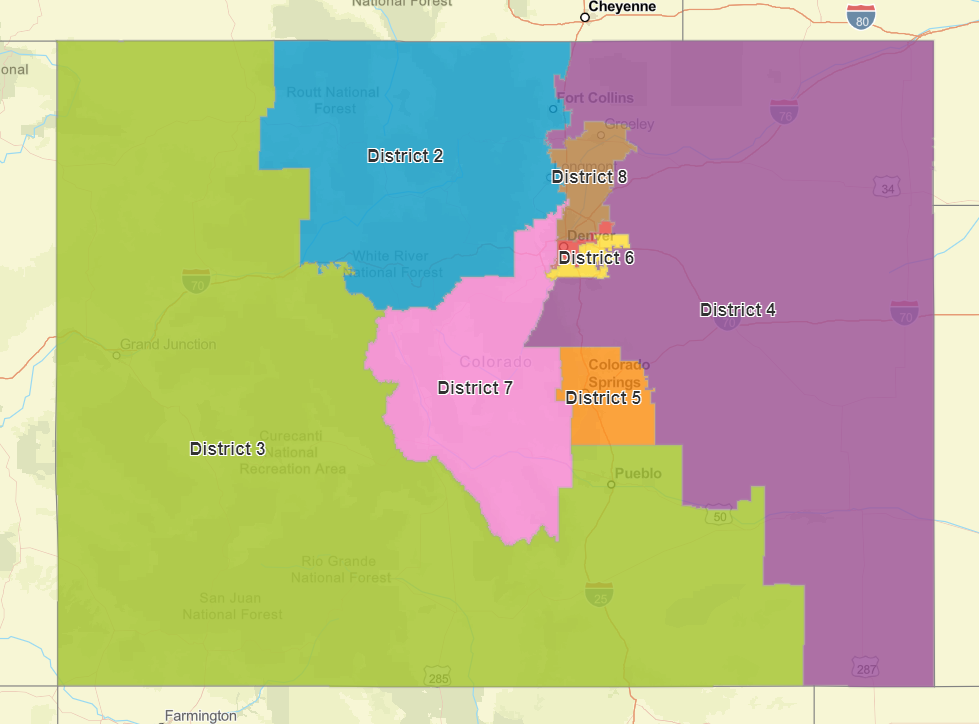
Yes, you should be paying attention to school board races even if you don’t have children. How well educated the state’s 905,000 students are helps determine the kind of world you’ll live in!
What the heck is the state board of education? In short, it's a nine-member board that sets education policy and supervises nearly 2,000 public schools in the state. It also supervises accreditation for teacher preparation programs at the state’s colleges and universities.
Want more? The board sets academic and teacher standards, sets rules and regulations for the education laws state legislators pass, oversees yearly state tests, rates schools and districts on their performance, and oversees how teachers are evaluated and licensed. The board also hires the state’s education commissioner and makes sure state and federal education dollars are properly distributed to schools.
The board has the power to direct local school districts after years of consecutive low performance and it can overturn individual district decisions on charter schools.
Why are there two new seats on the state board of education?
The board is growing this year from seven to nine seats. That’s because the school board’s members are elected from districts that correspond to Colorado’s congressional districts. And that means another seat to represent the state’s new 8th Congressional District and to avoid tied votes, the state board gets an extra at-large seat this year. All Colorado voters get to weigh in on that one.
Board members, representing a political party, are elected for six-year terms on a staggered basis. There are four open seats this fall. Right now, the seven-member board has four Democrats and three Republicans.
What’s interesting about the races this year?
Latino voters could be decisive in the new 8th Congressional District, spanning parts of Adams and Weld counties. There is a Latino candidate in that district, who, if elected, would be the first person of color on the current board. About 35 percent of the state’s students are Hispanic.

The pandemic inspired many parents to take a closer look at what and how their children were learning. In some cases, it has politicized local school boards, which are traditionally focused on budgets, curriculum and the meat and potatoes of district operations. Some of that politicization and division has trickled into state school board affairs, sparking a small but loud backlash against revising social studies standards to include references to LGBTQ and communities of color as dictated by Colorado law.
It’s unclear how voters will respond to this year’s school board candidates, especially when the overwhelming majority of voters don’t have school-aged children. Traditionally school funding, school choice, and how the state board should rate schools and districts have animated some voters. Though the pandemic disruptions and resulting decline in test scores have amplified interest in education and raised concerns among some parents about transparency, a recent Gallup poll finds parents remain largely satisfied with the education their oldest child is receiving.
Two incumbents are up for re-election; one of them flipped the board Democratic in 2016. Though the state school board has a partisan split, many votes are unanimous. This year’s candidates all support accelerating learning recovery, evidence-based reading training for teachers and giving students multiple pathways for life after high school. But there are differences among some. Some of the Republican candidates harbor suspicions that students are being indoctrinated and don’t like teachers’ unions, while their Democratic challengers don’t have such concerns.
The candidates
At-large seat (all Colorado voters)
Republican Dan Maloit founded Colorado’s Moms and Dads to organize support for “kid-focused” parent candidates for school board across Colorado. During the pandemic, Maloit spoke regularly at St. Vrain Valley School board meetings advocating for schools to open. He requested that the district refuse donations from teachers unions. A campaign mailer stated: “We know that the teachers’ unions want to suppress the voice of parents and impose extreme ideological beliefs on children across Colorado.”
His website lists his priorities as repairing the academic and physiological damage inflicted by the pandemic on children. Maloit wants teachers and school districts to focus on “teaching students academics, not political or social distractions.” Another priority is giving parents a say in what’s taught.
Maloit served in the Army for several years and was deployed to Iraq twice and other countries in the region. He has worked in the health care and medical device industry.
Democrat Kathy Plomer served on the Adams 12 school board for eight years, six of them as president. She has served on the board of the Colorado Association of School Boards. She said she fought to bring accountability and transparency to the district’s $450 million budget and promoted parents as partners in the education process. She served as the president of her local parent teacher organization and on Adams 12’s accountability committee.
Her website lists her priorities are academic excellence for every child, respecting teachers, and transparency and accountability. Her focus will be on expanding opportunities for students and making sure there are pathways to prepare them for college or enter the workforce right out of high school with a good paying job. She wants to make sure that teachers have access to professional development and part of elevating the teaching profession is paying educators what they are worth.
Plomer has worked in public health for 30 years and, most recently, assisting COVID-19 impacted people with addressing challenges like access to food, health care and housing.
Ryan Van Gundy is running under the Libertarian Party banner, and Eric Bodenstab represents the Unity Party of Colorado.
8th Congressional District
Republican Peggy Propst sat on the state board of education from 2004-10. In her final year of her term, she led efforts to oppose the adoption of national Common Core standards which her website notes would result in declining academic scores and indoctrination of teachers and students. Propst, then Peggy Littleton, served as an El Paso County commissioner from 2011-18.
Propst helped found a charter school and taught at both charter and private schools. She directed Colorado’s GEAR UP program designed to increase the number of first-generation low-income students entering post-secondary education.
Propst’s priorities are to address declining academic performance, teach factual history, and shift the focus from sexual issues to back to the basics. Her website states that unions representing teachers are “plagues on our public-school system.”
Democrat Rhonda Solis served eight years on the Greeley-Evans School District 6 board of education and is co-founder and vice-president of the Latino Coalition of Weld County. She’s been active in community groups and been a court-appointed special advocate for children who have experienced abuse or neglect.
The priorities on Solis’ website are to improve academic performance, advance policies that provide a well-rounded education, improve school climate and culture, boost equity and access and promote personal learning plans for all students. She advocates “fact-based social studies, access to fact-based reproductive education, science-based social and emotional support and education, and science-based literacy for all students.”
She supports parents being partners and leaders in the education of their children, and developing training programs and policy guidelines that “celebrate the unique cultural heritage and identity of each student and the strength of a collective diversity of thought.”
James K Treibert is also running as a member of the American Constitution Party.
6th Congressional District
Incumbent Democrat Rebecca McClellan was elected to the state board in 2017. She served on Centennial’s city council from 2006-14 where, as the liaison to local schools, worked to develop and pass measures to improve school funding. She volunteered in district schools for more than a decade and served on the executive board of her school district’s legislative network.
McClellan’s website said she worked to support full-day kindergarten and the implementation of the READ Act to ensure every student is receiving evidence-based literacy instruction. She pushed for strategies like high-impact tutoring to accelerate academic growth after the pandemic and has worked with lawmakers and school districts to expand programs that give students more pathways after high school.
Republican challenger Molly Lamar is a Cherry Creek parent and former elementary school teacher and serves as co-chair on the Cherry Creek High School accountability committee. She sits on a district’s subcommittee that details how the school district will improve performance.
Her website lists her priorities as expanding security hardware for schools, restoring trust between parents and teachers to ensure educational success and more accountability over school district spending. Her website states that school districts are “spending exorbitant amounts of money on divisive programs that do little to improve academic performance.” Lamar has been critical of the Cherry Creek School Board over communication and transparency and has appeared on national conservative media.
5th Congressional District
Incumbent Republican Steve J. Durham is running for a second term at the state school board after being appointed to fill a mid-term vacancy in 2014. Durham served as a state legislator in the 1970s and 1980s.
Durham said his priorities are getting the tools the state needs to address chronically underperforming school districts “to hold the adults in education accountable for the outcomes children have,” expanding school choice and increasing the number of third graders who can read at grade level. On the state school board, Durham has been vocal on a number of issues including revising the social studies curriculum and tightening accountability on low-performing school districts.
Democratic candidate Joseph Shelton works as a campus safety officer at Colorado College and has worked at Inside Out Youth Services, an advocacy organization for LGBTQ+ youth. A graduate of Colorado Springs District 11, he has sat on several juvenile justice and Colorado Springs District 11 committees. Shelton’s website lists his priorities as recruiting and retaining teachers at a livable wage, especially expanding access to mental health services, equitable school funding, and improving the state’s accountability system.
Editor's Note: A previous version of this story misspelled Peggy Propst's name.









